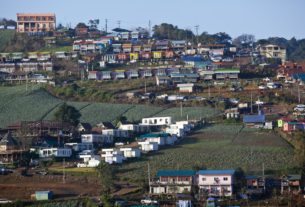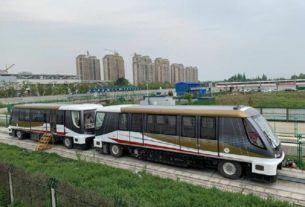Thailand’s electricity generation system will find it difficult to endure a disruption of natural gas from Myanmar of more than 10 days.
Soonchai Kumnoonsate, governor of the Electricity Generating Authority of Thailand, said on Wednesday that power plants with a combined capacity of almost 6 gigawatts here are dependent on supplies from the neighbouring country.
Some can switch to pricier diesel oil but if gas doesn’t come for more than 10 days, there will be problems with logistics and the ability to transport diesel sufficiently to the plants, he said during a dinner hosted by the IEEE Power & Energy Society-Thailand.
The significant rise of non-firm production from renewable power plants would pose a threat to the reliability of the electricity system.
Under the national power development plan (PDP 2015), Egat is required to buy 19.64GW from hydro, wind, solar, waste and biomass plants in 2036, more than double 7.49GW last year.
Under the national power development plan (PDP 2015), Egat is required to buy 19.64GW from hydro, wind, solar, waste and biomass plants in 2036, more than double 7.49GW last year.
Pitipan Tepartimargorn, chief operating officer for the upstream petroleum and gas business at PTT, told the conference that the energy firm was building a east-west gas pipeline loop to integrate supply from various domestic and foreign sources, including Myanmar
The loop would greatly help boost national gas security. Natural gas feeds nearly 70 per cent of all power plants in Thailand. Of the total gas supply of 4.87 billion cubic feet per day, about 20 per cent is piped in from three offshore fields in Myanmar.
Imports of liquefied natural gas would help improve supply security as domestic and Myanmar gas output is depleting. PTT is doubling the capacity of its LNG receiving terminal by 2017 to 10 million tonnes per year, equivalent to about 1.4bmcfd of natural gas.
PTT takes more than 1bmcfd of gas from Myanmar. Natural gas liquefied for marine transport is called LNG.
If PTT goes only by the latest demand forecast in the PDP, it would hardly need to invest anything new in its gas pipeline network since demand for natural gas was expected to remain stable at about 5bmcfd for the next 20-30 years.
However, the forecasts had not been so accurate in the past, while the pipeline system needs several years to plan and build, he said.
Thailand has faced more disruptions of gas from Myanmar in recent years due to maintenance requirements of the gas fields and unexpected events, which had affected the Thai gas and power industries.
Energy Minister Anantaporn Kanjanarat told the conference that electricity rates had been reduced by only Bt0.30 per kilowatt-hour while oil and gas prices had been halved during the past year or so because power costs were calculated on more variables such as investment in electricity transmission and gas pipelines.
Source: http://www.nationmultimedia.com/business/Plan-to-secure-reliable-gas-supply-in-pipeline-30272370.html

